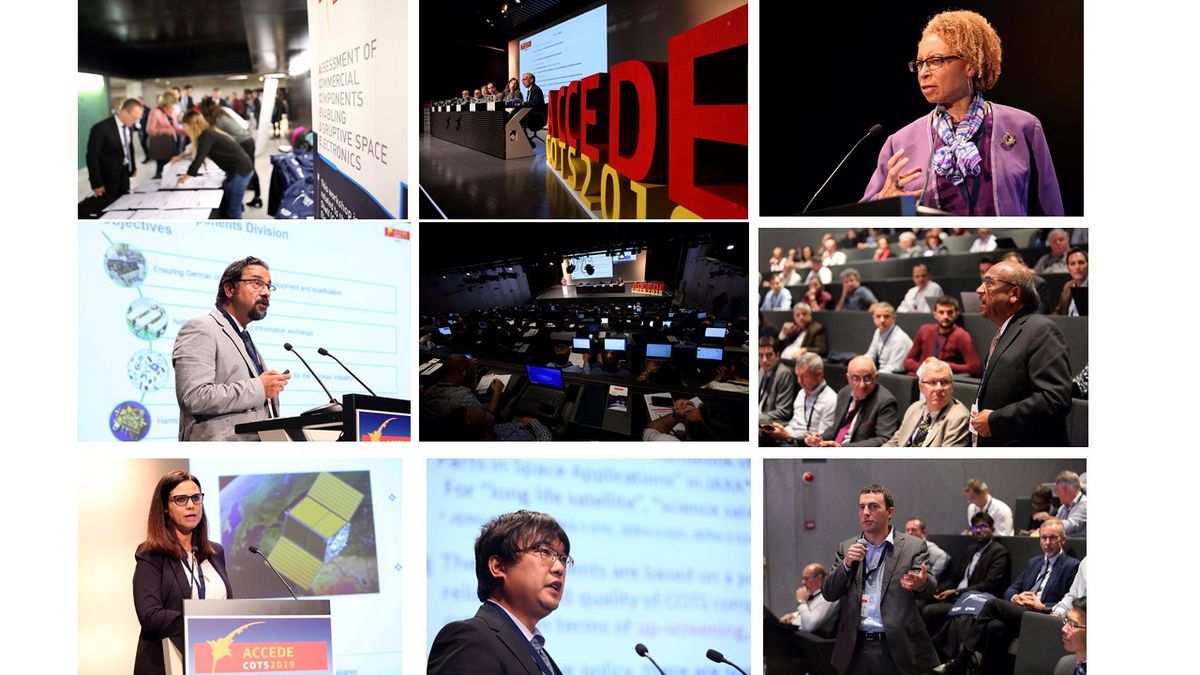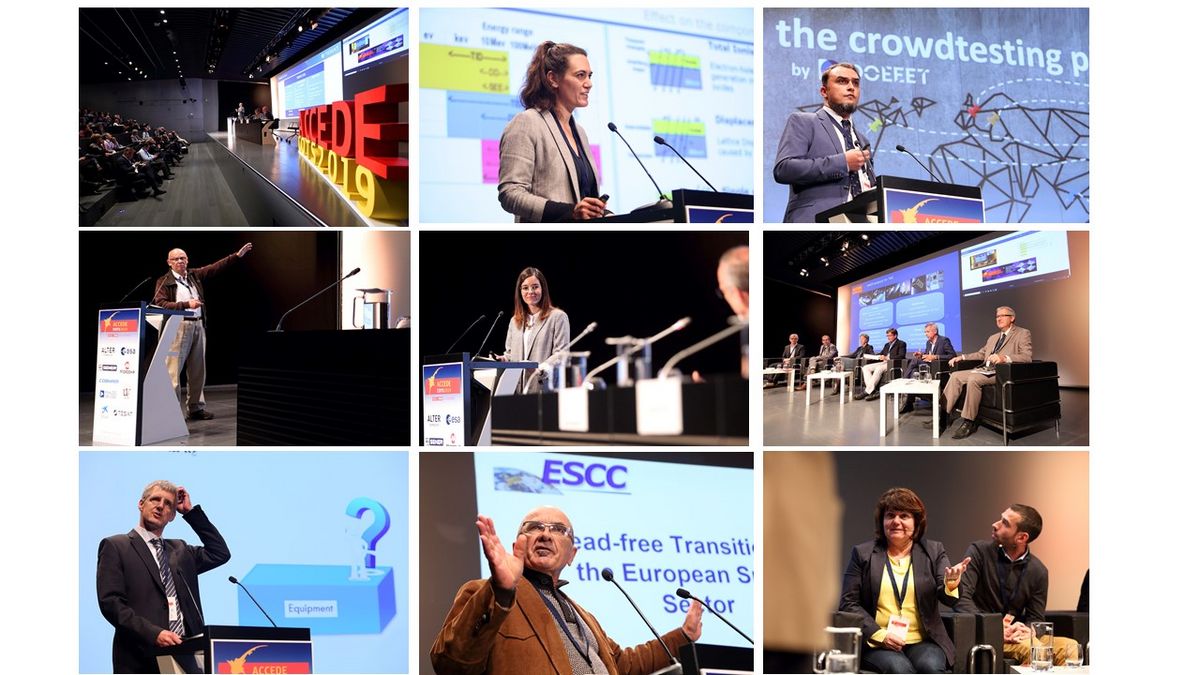3 DAYS - 50 SPEAKERS - 6 SESSIONS - 2 ROUND TABLES - 240 ATTENDEES -
ACCEDE
Assessment of Commercial Components Enabling Disruptive Space Electronics
During last 6, 7 & 8 November took place in Seville, the Workshop ACCEDE on COTS.
The congress was opened by Britta Shade (ESA), José Guadix (University of Seville), Luis Gómez (ALTER TECHNOLOGY) and Esperanza Caro on behalf of the Seville City Council.
The congress was organized in 9 sessions, with 50 oral presentations, two invited talks and two round tables, including experts from more than 25 countries. National space agencies (ESA, NASA, CNES, DLR,...), as well as satellite manufacturers (Airbus Space and Defense, Thales Alenia Space, SENER,...), components manufacturers (Microchip, Cobham, Analog Devices, STMicroelectronics, Vishay, Infineon,...) and research institutions (CERN, Fraunhofer Institut,...) .
Talks
Some talks by way of example were: - Shri Agarwal (NASA) "Reviving U.S. military standards to infuse new technology and to meet the needs for new space missions". - Fabio Vitobello (European Commission) "COTS: a way to support EU Space Policy". - Burak Goekgoez (DLR) "Introduction of DLR EEE-Working Group "The usage of automotive components in space applications". And many more.
Objective
The ACCEDE workshop focused on all aspects related to the use of commercial electronic components (EEE) for space applications. Although the main objective was to look for solutions to cover the new needs demanded by programs called "New Space", including constellations, cubesat, and/or nano-satellites, it is also necessary to design methodologies that allow their use with a high degree of confidence in more classical space missions where higher levels of reliability are still demanded.
Space is becoming an increasingly open and competitive sector, public institutions and national space agencies are giving way to private initiatives, and projects are increasingly demanding shorter deadlines, better performance, etc., while at the same time wanting to reduce total costs from the start of missions to their final dismantling. This trend has consequences at all levels, including the selection and procurement of electronic components that are part of their systems.
The aim of the conference was to be a forum for experts to share their experiences and forecasts, based on technical facts and evidence, taking into account lessons learned from previous and ongoing space missions, and their forecasts in future programmes.


